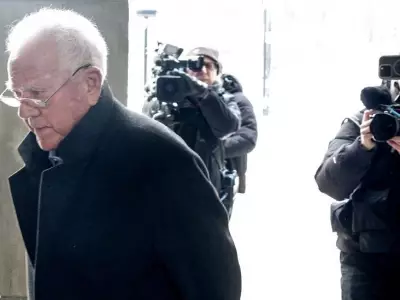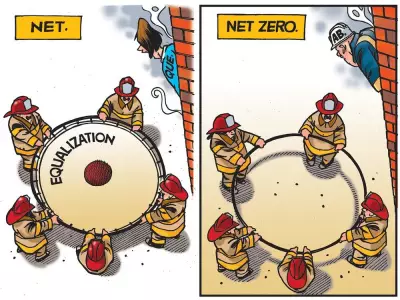
Prime Minister Mark Carney's inaugural federal budget has ignited controversy with its unexpected allocation of $150 million to the Canadian Broadcasting Corporation for potential participation in the Eurovision Song Contest, drawing sharp criticism from fiscal conservatives and political commentators alike.
Budget Priorities Questioned Amid Soaring Debt
The 2025-26 federal budget, dubbed the "Eurovision Budget" by critics, arrives as Canada faces staggering financial pressures. Interest payments on federal debt now exceed $1 billion weekly, a sum comparable to spending on national defence or Indigenous services. Despite this financial burden, the Carney government has earmarked substantial new funding for CBC, including exploration of Canada's involvement in the European music competition.
Conservative MP Andrew Lawton captured the public sentiment on social media, stating: "Can't afford groceries? Don't worry — the Liberal budget is exploring participation by CBC in Eurovision." The comment highlights what many perceive as misplaced priorities in the government's spending plan.
CBC Funding Debate Intensifies
The controversy extends beyond Eurovision to the broader question of CBC's funding model. The public broadcaster already receives approximately $1.2 billion annually from Parliament, yet continues to operate at a loss in some years due to declining advertising revenue and audience numbers.
Meanwhile, private media outlets including CTV and Global struggle to compete with the state-funded broadcaster. Several media executives have described CBC's government-backed dominance as an existential threat to independent journalism in Canada.
The situation contrasts sharply with Australia's approach, where the government negotiated advertising revenue sharing agreements with platforms like Facebook, resulting in growth for independent media. Canada's relationship with social media platforms has been more contentious, contributing to the financial challenges facing private media companies.
Political Implications and Alternative Solutions
Critics argue that CBC has functioned as a de facto media arm for the Liberal party, providing sympathetic coverage and soft interviews during election periods. During the recent campaign, Carney had openly promised hundreds of millions in additional funding to the network.
Diane Francis, writing in the Financial Post, characterized the Eurovision initiative as a "vanity project" that ignores Canada's pressing economic challenges. She noted that while Carney promised a "generational investment" in this budget, the CBC allocation delivers little more than "a ticket to watch Eurovision."
Alternative proposals gaining traction among critics include privatizing CBC television stations and redirecting the proceeds toward tax relief for Canadian taxpayers. Others suggest the funds would be better spent addressing the country's NATO commitments, which were reportedly neglected under previous Liberal governments.
As Canada navigates complex trade negotiations with the United States and manages domestic economic pressures including inflation, the Eurovision budget item has become a lightning rod for broader debates about fiscal responsibility and government spending priorities.






